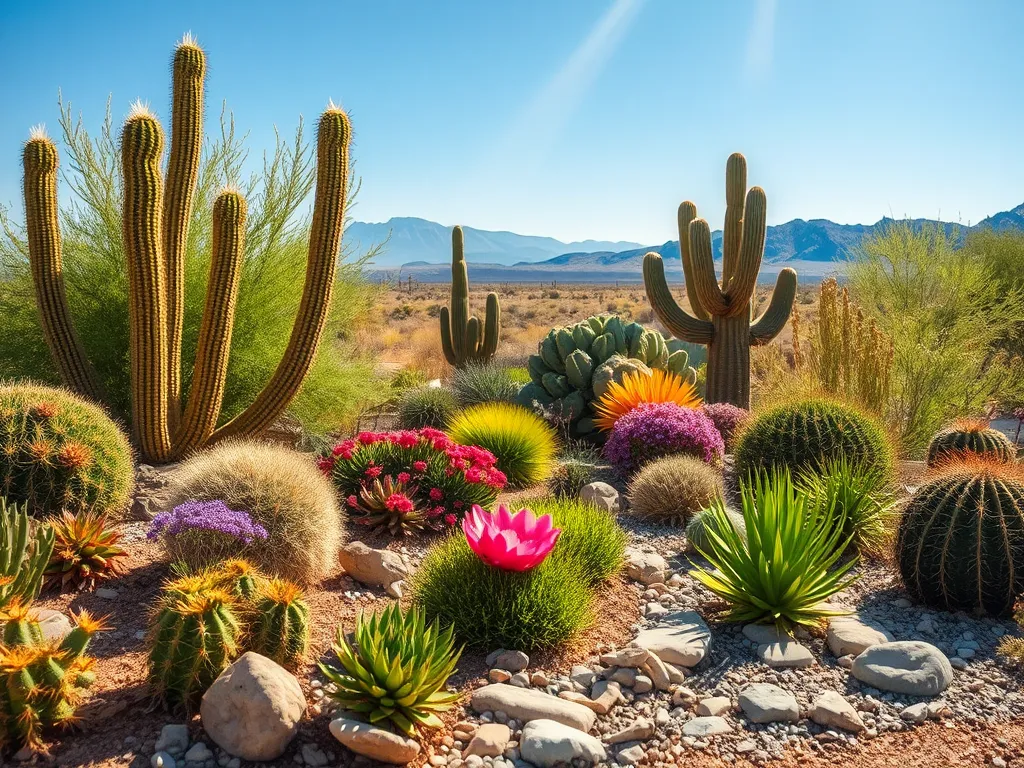Mastering Phoenix Watering Restrictions: Adapt and Thrive

Understanding Watering Restrictions in Phoenix
Watering Restrictions in Phoenix have become a critical aspect of urban management as the region grapples with its desert climate and limited water resources. These restrictions are implemented to conserve water, particularly during periods of drought, ensuring the sustainability of both the environment and the community's water supply.
The Watering Restrictions in Phoenix are guided by stringent regulatory frameworks aimed at mitigating water wastage during peak consumption seasons. These guidelines specify designated days for residential watering, enforce time limits, and encourage the adoption of water-efficient landscaping practices. As a result, the residents are urged to align their gardening and irrigation schedules according to these established restrictions.
Understanding the Watering Restrictions in Phoenix is essential for residents and newcomers alike, as non-compliance can result in fines and penalties. The city’s efforts to regulate water usage include education on the importance of efficient water application methods, which can help reduce the strain on the local water supply while still maintaining the aesthetics of outdoor spaces.
Moreover, the Watering Restrictions in Phoenix have broader implications for the local ecology, as the limitations guide the community toward utilizing native vegetation that requires less water. This shift not only supports the preservation of local wildlife habitats but also contributes to a more resilient urban environment that can withstand the climatic challenges endemic to the desert region.
In response to ongoing drought conditions, Phoenix has implemented a variety of watering restrictions to help conserve its precious water resources. These restrictions aim to manage water usage efficiently, especially during peak demand seasons. Residents are encouraged to adapt their gardens by using drought-resistant landscaping techniques, which require less water and are better suited to the local desert climate. By following these guidelines and adopting water-saving habits, the community can help ensure a sustainable future for all.
In Phoenix, the challenge of maintaining healthy landscapes while adhering to watering restrictions is significant. One of the most effective ways to conserve water while keeping plants thriving is by using efficient irrigation systems. These systems are designed to minimize water waste, ensuring that the right amount of water is delivered directly to the roots of plants. By upgrading to more advanced irrigation solutions, homeowners and businesses can better comply with local restrictions without sacrificing the beauty of their outdoor spaces.
In summary, the Watering Restrictions in Phoenix serve as a framework for sustainable water management, promoting responsible usage among residents and fostering a community ethos centered around conservation and environmental stewardship.
Overview of Phoenix Watering Restrictions
Currently, the guidelines for watering schedules in Phoenix mandate specific days and times for outdoor watering. Typically, residential watering is allowed two days per week, with regulations that prohibit watering during the heat of the day to minimize evaporation losses. These time slots are strictly enforced, with designated hours set from 6 PM to 8 AM, ensuring that water is utilized efficiently.
The reasons for these watering restrictions are multifaceted, stemming primarily from the need to conserve water amidst increasingly frequent drought conditions. With Phoenix experiencing prolonged dry spells and diminishing groundwater levels, the implementation of these guidelines is necessary to preserve the region's water resources for future generations. Moreover, it addresses the growing concerns surrounding water scarcity and its implications for both urban living and agriculture.
The impacts of restrictions on local ecology are significant, promoting the growth of drought-resistant plants and encouraging biodiversity. Native plants, once overlooked for more conventional landscaping, become vital for maintaining the ecological balance within the urban landscape. By adhering to these watering restrictions, residents contribute to the reduction of stress on local ecosystems and promote the resilience of the natural environment.
In response to the ongoing drought conditions in the Southwest, cities like Phoenix have implemented strict watering restrictions to preserve this vital resource. These restrictions are part of a broader effort to promote sustainable practices, particularly in landscaping and residential water use. Residents and businesses alike are encouraged to adopt water conservation methods that help reduce overall consumption while maintaining healthy landscapes. By understanding and adhering to these regulations, Phoenix residents can contribute to the long-term sustainability of their community and the environment.
Impact on Gardening Techniques
Adjusting irrigation methods becomes essential under the Watering Restrictions in Phoenix. Residents are encouraged to use efficient watering systems like drip irrigation that deliver water directly to plant roots, reducing runoff and evaporation. This method not only helps in conserving water but also ensures that plants receive adequate hydration, particularly during the peak summer months.
For those who enjoy gardening, adopting xeriscaping principles is recommended. Choosing the right plants for xeriscaping—such as succulents, agave, and native wildflowers—ensures that gardens remain vibrant and sustainable without excessive water usage. These plants are well-adapted to the arid conditions of Phoenix and require minimal care, effectively thriving in the absence of constant irrigation.
Utilizing mulch for moisture retention is another effective technique that residents can incorporate into their gardening practices. A layer of organic mulch can significantly reduce evaporation, suppress weed growth, and enhance soil quality. By applying mulch around plants, gardeners can extend the intervals between watering sessions while maintaining the health and appearance of their landscapes.
Water Conservation Practices
Rainwater harvesting techniques are becoming increasingly popular among Phoenix residents, offering a sustainable means of addressing the restrictions. By installing rain barrels or cisterns, homeowners can collect and store rainwater for later use, such as irrigation or landscaping, significantly reducing their reliance on municipal water supplies.
Drip irrigation systems also play a vital role in water conservation practices. These systems can be set up to deliver water directly to the base of plants in small, measured amounts, ensuring that water is not wasted. The precision of drip irrigation not only aligns with the watering restrictions but also contributes to healthier plants and reduced water bills for residents.
Implementing smart watering technologies further enhances conservation efforts. Devices such as soil moisture sensors and automated irrigation systems can adjust water delivery based on real-time conditions, ensuring that gardens receive water only when necessary. This innovation aligns perfectly with the Watering Restrictions in Phoenix, making gardening both efficient and environmentally friendly.
Community Resources and Support
Several local organizations promote water conservation efforts within the Phoenix community. These organizations often provide valuable information on best practices for landscaping, water-saving technologies, and educational resources aimed at fostering a culture of conservation among residents.
Workshops on sustainable gardening are frequently offered through community centers and local non-profits, providing residents with hands-on guidance in adapting their gardening practices to meet the Watering Restrictions in Phoenix. Participants gain insights into water-efficient landscaping techniques and learn about native plants suitable for their gardens.
Additionally, numerous online resources are available for residents seeking to enhance their understanding of water conservation. From official city websites to gardening forums, these platforms offer a wealth of information, including compliance tips, success stories from fellow gardeners, and strategies for sustainable living in a desert landscape.
Navigating State Regulations
Understanding statewide water usage guidelines is essential for all residents of Phoenix. These regulations establish overarching principles for water conservation across Arizona, ensuring that communities work together in addressing the challenges posed by limited water resources. Staying informed about these guidelines can help residents navigate local restrictions more effectively.
Penalties for non-compliance with watering restrictions can be significant. Residents who fail to adhere to scheduled watering days or times may face fines and additional charges on their water bills. This emphasizes the importance of awareness and compliance as part of community responsibility toward water conservation.
Looking ahead, the future outlook on water regulations in Phoenix suggests an escalated emphasis on sustainable practices and technology adoption. As climate conditions continue to evolve, the city's water policies are likely to adapt, promoting resilience and innovation in water usage to secure the region’s water supply.
